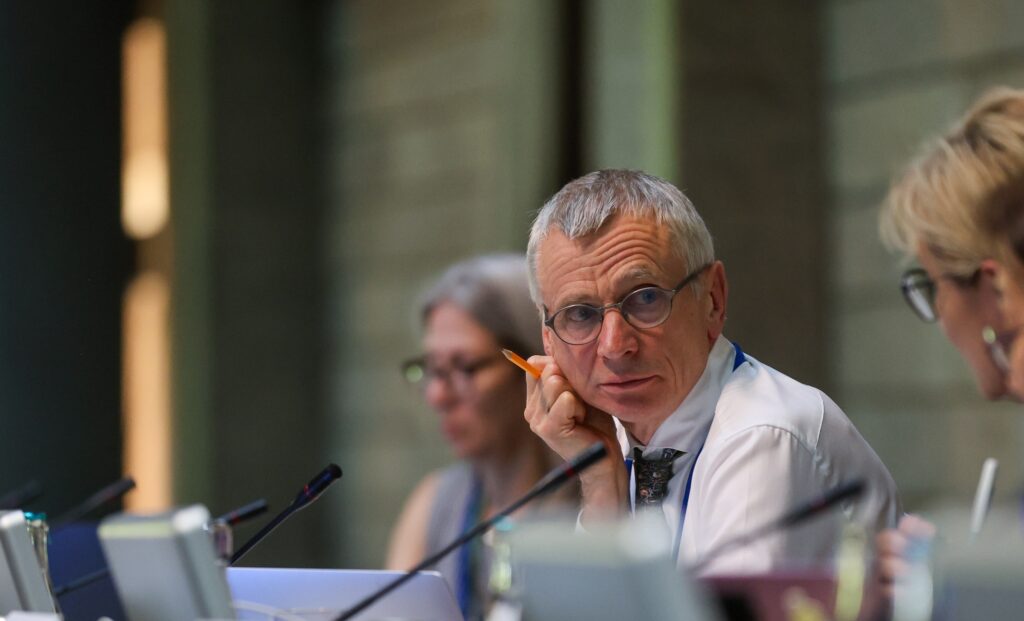This op-ed was published in a number of Kenyan media outlets
Today we mark the International Day for Biodiversity (IDB), a universal annual celebration commemorating the adoption of the text of the Convention on Biological Diversity (CBD) on 22 May 1992. Biodiversity – the diversity within species, between species and of ecosystems, including plants, animals and microorganisms – is the foundation of human existence on this planet. Without it, Earth would not be the cherished, hospitable planet that we humans call home.
Biodiversity supports everything that nature gives us: food, clean air and water, medicine, shelter, spiritual comfort and so much more. Biodiversity loss causes massive disruptions to ecosystem functioning, causing human suffering and heightened vulnerability. The economy inevitably suffers. It is estimated that over half of the world’s global Gross Domestic Product is moderately or highly dependent on biodiversity. Put simply, there is no economy without biodiversity.
Biodiversity loss is enmeshed with pollution and climate change. We know what is causing this infamous triple crisis that has befallen our world. It can all be summed up in one sentence: humans’ dysfunctional relationship with nature. We are part of nature and it is time we act like it.
The theme of our celebration today is “Be part of the Plan”, a call to action aimed at everyone to help implement the Kunming-Montreal Global Biodiversity Framework, which we have branded “The Biodiversity Plan” to foster its uptake by the public at large.
Kenya and 195 other Parties to the CBD adopted the Kunming-Montreal Global Biodiversity Framework at COP 15 in December 2022. That was an extraordinary feat demonstrating the ability of environmental multilateralism to bring nations and peoples together. It is now time to turn that agreement into action.
All Parties to the CBD are expected to align their National Biodiversity Strategies and Action Plans (NBSAPs) ahead of COP 16, which will take place this year from 21 October-1 November in Cali, Colombia. Several Parties have already submitted their revised NBSAPs. We expect the other Parties to follow suit in the next few months before COP 16. We do not have much time. The targets of The Biodiversity Plan must be achieved by 2030.
I am delighted to see that Kenya is undertaking a robust process of aligning its NBSAP with the goals and targets of The Biodiversity Plan. This exercise is crucial. It is important that Kenya and the other Parties to the Convention pursue the global Biodiversity Plan by setting nationally adequate targets that consider the country’s circumstances. Through these commendable efforts, the Government of Kenya aims to effectively contribute to global biodiversity conservation while fostering sustainable development domestically.
Government-led action is essential. But for the Plan to work, we need a whole-of-society approach that includes everyone. We need civil society, indigenous peoples and local communities, business and finance communities, women, youth, and academia. We need everyone to contribute, including you.
Through informed purchasing decisions, citizens can abate the pressure exerted on biodiversity, one shopping cart at a time. Through their votes and engagement in the political process, citizens can prompt politicians to embrace the Biodiversity Plan as a domestic policy priority. The private sector can take responsibility to align their business and investment decisions with human wellbeing and nature’s health. Civil society and youth can continue playing their important role in holding policymakers to account and in enhancing communication, education and public awareness.
While working together in the pursuit of The Biodiversity Plan, we must empower youth and women and respect the traditional knowledge of indigenous peoples and local communities. That is the message we are delivering this year on the International Day for Biodiversity, as we celebrate in Nairobi while the fourth meeting of the Subsidiary Body on Implementation of the CBD is underway at the United Nations Environment Programme’s headquarters in Gigiri. Representatives of the 196 Parties to the CBD and observer organizations will join this celebration in the environment capital of the world.
COP 16 in Colombia is on the horizon. This meeting, which will unfold under the compelling theme of “Peace with nature”, must, among other things, resolve pending issues related to capacity building, technology transfer and finance, the fair and equitable sharing of the benefits that arise from the use of digital sequence information on genetic resources, and empower indigenous peoples and local communities, so that all countries of the world have the means to achieve the 23 action targets that The Biodiversity Plan contains.
This is humanity’s best chance to halt and reverse biodiversity loss and live in harmony with nature.
“Biodiversity supports everything that nature gives us: food, clean air and water, medicine, shelter, spiritual comfort and so much more.” 🌱
Read this op-ed by @hdavidcooper, which was published in a number of Kenyan media outlets: https://t.co/mhwsxmKyJx#BiodiversityDay pic.twitter.com/qkMg5hgA5R
— UN Biodiversity (@UNBiodiversity) May 22, 2024
More information:
Nairobi Meetings (SBSTTA-26 and SBI-4)


